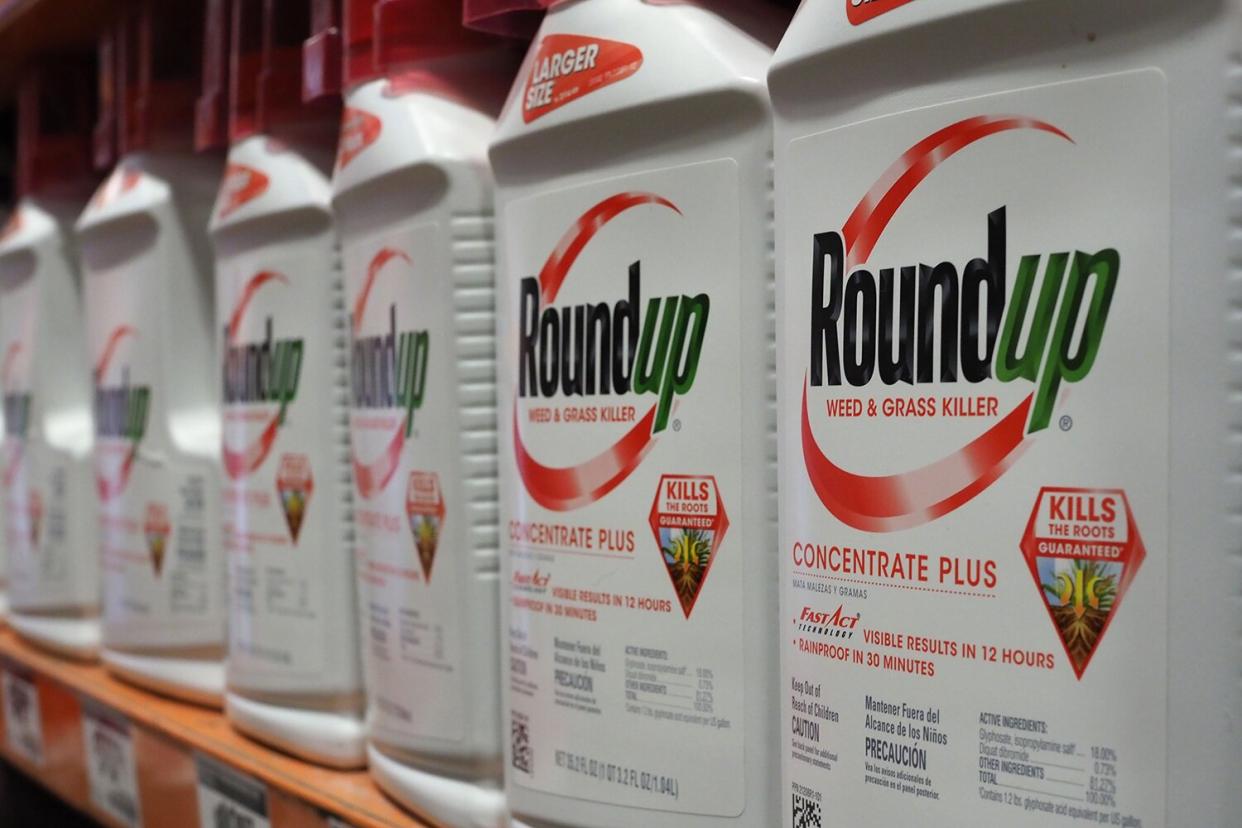Weed-Killing Chemical Found in Majority of Americans' Urine, New CDC Study Finds

ROBYN BECK/AFP via Getty
The majority of Americans have traces of a weed-killing chemical in their urine, according to a new study from the U.S. Centers for Disease Control and Prevention.
On Monday, the National Health and Nutrition Examination Survey (NHANES), a unit of the CDC, detailed a new analysis that found 80% of urine samples — 1,885 of 2,310 samples collected from children and adults between 2013 and 2014 — had detectable levels of glyphosate.
Glyphosate is the active ingredient in herbicides, including the popular brand Roundup. According to the World Health Organization's International Agency for Research on Cancer, the chemical is "probably carcinogenic to humans."
Never miss a story — sign up for PEOPLE's free daily newsletter to stay up-to-date on the best of what PEOPLE has to offer, from juicy celebrity news to compelling human interest stories.
"Glyphosate is the most widely used herbicide in the country, yet until now, we had very little data on exposure," Alexis Temkin, toxicologist at the Environmental Working Group, said in a statement. "Children in the U.S. are regularly exposed to this cancer-causing weedkiller through the food they eat virtually every day."
"The Environmental Protection Agency should take concrete regulatory action to dramatically lower the levels of glyphosate in the food supply and protect children's health," added Temkin.
Researchers said that food is the main source of exposure to the chemical. According to the Environmental Working Group, traces of glyphosate in food products is a result of the herbicide being used as a pre-harvest drying agent so crops can be harvested sooner, which increases the likelihood that the pesticide makes it into foods.
RELATED: Deadly Multi-State Listeria Outbreak Linked to Florida Ice Cream Company
"People of all ages should be concerned, but I'm particularly concerned for children," Phil Landrigan, who worked for years at the CDC and the EPA, told the Guardian. "Children are more heavily exposed to pesticides than adults because pound-for-pound they drink more water, eat more food and breathe more air."
"Also, children have many years of future life when they can develop diseases with long incubation periods such as cancer. This is particularly a concern with the herbicide, glyphosate," Landrigan said.
Last month, the Supreme Court rejected a request from Bayer, the German pharmaceutical company that owns Roundup, to dismiss lawsuits that claim the weed killer causes cancer. In one case, a California man says he developed non-Hodgkin's lymphoma after using Roundup on his property, CBS News reports. T
The company has maintained that the herbicide is safe, but announced plans last year to replace its glyphosate-based products in the U.S. by 2023.

